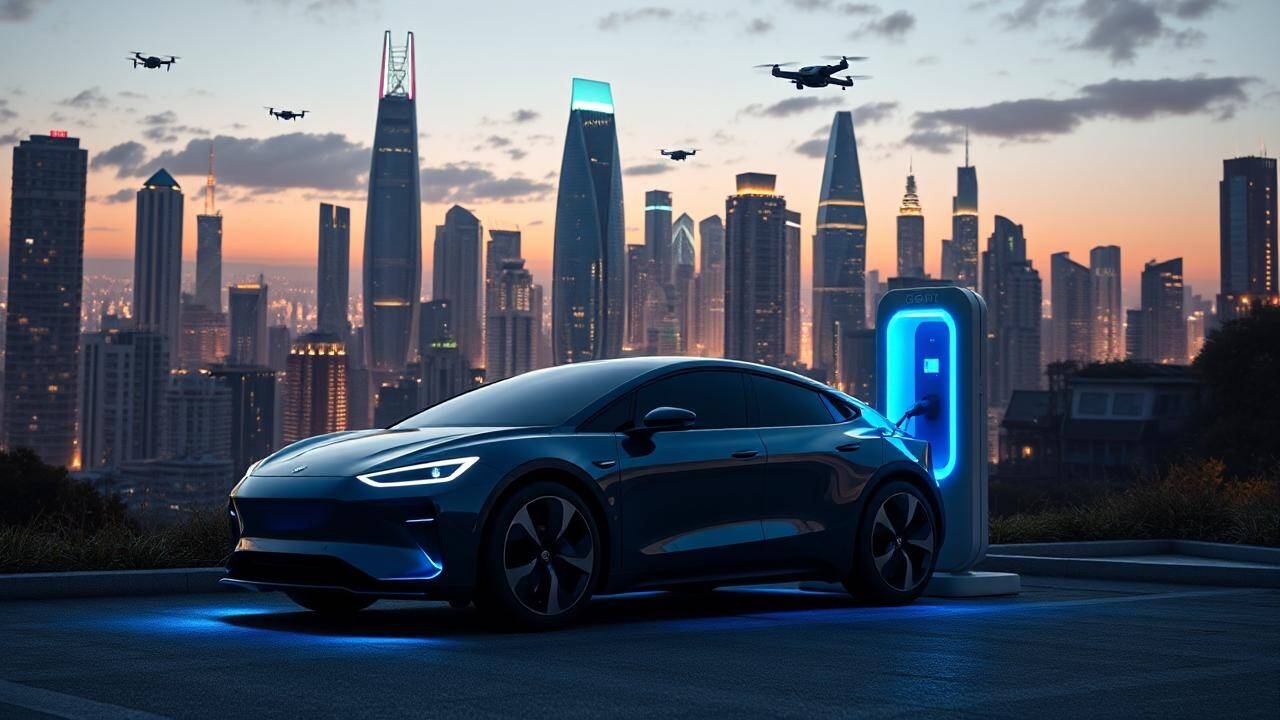Electric Vehicle Adoption and the Global Battery Supply Challenge
The global shift toward electric vehicles (EVs) is accelerating as governments, consumers, and manufacturers prioritize sustainability and carbon reduction. EVs promise cleaner transportation, lower emissions, and reduced dependence on fossil fuels. However, the rapid adoption of electric vehicles faces a significant hurdle: the global battery supply chain . Lithium-ion batteries , which power the majority of EVs, are crucial for their performance, range, and affordability. Ensuring a stable and sustainable battery supply is now a central challenge for the automotive industry.

The Rise of Electric Vehicles
Electric vehicles have witnessed remarkable growth in the past decade. Advances in battery technology , declining costs, and government incentives have contributed to increased adoption worldwide. Leading automakers have announced ambitious EV production targets, and consumers are showing growing interest in electric mobility. Countries like Norway, China, and the United States are at the forefront of EV adoption , demonstrating the feasibility of large-scale electric transportation. However, as demand grows, the pressure on raw material supply and battery production capacity intensifies.Understanding the Battery Supply Challenge
Lithium-ion batteries require critical materials such as lithium, cobalt, nickel, and graphite. The extraction and refinement of these materials are concentrated in specific regions, leading to potential supply bottlenecks. For example, lithium mining is largely concentrated in South America, while cobalt production is dominated by the Democratic Republic of Congo. Disruptions due to geopolitical tensions, environmental concerns, or labor issues can significantly impact battery availability and costs. Dr. Emily Zhao, a materials scientist, emphasizes, “The EV revolution depends heavily on a stable and ethically sourced battery supply chain, which is currently under strain.”Environmental and Ethical Concerns
Battery production also raises environmental and ethical challenges. Mining for lithium, cobalt, and other minerals can lead to habitat destruction, water scarcity, and pollution. In some regions, unethical labor practices, including child labor, have been reported in cobalt mining. Automakers are under increasing pressure to ensure that their supply chains are transparent, sustainable, and socially responsible. Recycling used batteries and developing alternative battery chemistries are emerging solutions to reduce dependence on mined materials.Innovations in Battery Technology
To overcome supply constraints, researchers and companies are investing in next-generation battery technologies. Solid-state batteries, lithium-iron-phosphate (LFP) alternatives, and sodium-ion batteries offer potential advantages in safety, cost, and resource availability. Improved energy density and faster charging capabilities can also make EVs more attractive to consumers. These technological innovations, coupled with advancements in battery recycling and circular economy practices, are essential to sustaining the global transition to electric mobility.Policy and Industry Measures
Governments and industry stakeholders are implementing policies and strategies to address battery supply challenges. Incentives for domestic battery production, investments in mining infrastructure, and partnerships for sustainable sourcing are becoming increasingly common. For instance, the European Union’s battery strategy focuses on reducing import dependency while promoting recycling and innovation. Similarly, automakers are forming strategic alliances to secure long-term access to critical materials and develop efficient battery manufacturing capabilities.Conclusion
Electric vehicle adoption is reshaping the future of transportation, offering a cleaner and more sustainable alternative to traditional vehicles. However, the global battery supply challenge poses a significant barrier to scaling EV production. Addressing this challenge requires a combination of technological innovation, ethical sourcing, recycling, and strategic policy interventions. By ensuring a stable and sustainable battery supply, the automotive industry can accelerate the transition to electric mobility while minimizing environmental and social impacts.Next Story